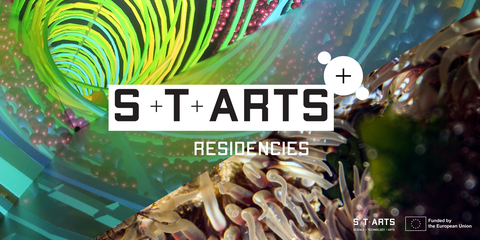May 22, 2024
OPEN CALL for 10 ARTIST RESIDENCIES in the S+T+ARTS program

S+T+ARTS Open Call
Since 2024, the Office for Academic Heritage, Scientific and Art Collections of TUD Dresden University of Technology has been a partner o f S+T+ARTS (Science, Technology and Arts), an initiative of the European Commission that aims to link technology and artistic practice in the best possible way and bring them into a fruitful exchange. As part of S+T+ARTS, STARTS EC(H)O has now published the call for applications for its residency program. The Office for Academic Heritage, Scientific and Art Collections is hosting a total of three residencies.
From December 2024, the Office for Academic Heritage, Scientific and Art Collections will offer three residencies on the topics of Modelling the Mind, Exploring Human – AI Relationships and Exploring the Physics of Life. These will take place in cooperation with Prof. Matthew McGinity's Immersive Experience Lab and the Interactive Science Lab at TUD's Center for Interdisciplinary Digital Sciences (CIDS) and are in close exchange with the Schaufler Residency@TU Dresden.
The program includes:
- Funding of up to €40,000 per challenge
- Advice and support from the STARTS EC(H)O residency host institutions
- Contact with experts
- An on-site kick-off meeting at the Office for Academic Heritage, Scientific and Art Collections of the TUD Dresden University of Technology in December 2024
- Support for the onboarding process
- Close monitoring of the projects
Applications can be submitted by individual artists, artist collectives or an independent artist. Artists who are currently working on their doctorate are also encouraged to submit an exposé on their research topic and to consider the residency project as part of a larger research context.
Submission of application documents is possible until June 30, 2024!
Further information on the application and the program:
Application form Open Call Info events
The project is funded by the European Union under the Grant Agreement No 101135691. Views and opinions expressed are however those of the author(s) only and do not necessarily reflect those of the European Union. The European Union cannot be held responsible for them.

European Union + S+T+ARTS
